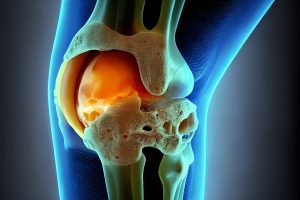Parents often fret when their teen drivers get behind the wheel, but parents of teens with attention-deficit/hyperactivity disorder (ADHD) may now have added worries.
A new study found that teens with ADHD are significantly more likely to get into a car crash than their peers.
During the first month a teen with ADHD is driving, the risk of an auto accident is 62% higher than for other teens. And over four years, the risk of an alcohol-related crash is roughly two times higher for drivers with ADHD.
Teens with ADHD are also more likely to get traffic tickets and engage in risky behaviors, such as not wearing a seatbelt, using electronics behind the wheel and driving too fast, the new research found.
“Teen drivers with ADHD are at an elevated risk for motor vehicle crashes, and the risk is particularly elevated in the first month of licensure, regardless of when they got licensed. Parents shouldn’t assume that delaying licensure will lower their teen’s risk,” said study author Allison Curry. She’s a senior scientist at the Center for Injury Research and Prevention at Children’s Hospital of Philadelphia.
ADHD is common in childhood and usually persists into adolescence, the study authors said. Symptoms include hyperactive behavior, inattention and impulsivity. Many of the skills needed for driving are impaired in teens with ADHD.
The study included nearly 15,000 teens who were seen at six Children’s Hospital of Philadelphia primary care practices in New Jersey. All had obtained a driver’s license between 2004 and 2014. Within this group, almost 1,800 had received an ADHD diagnosis.
The researchers compared the driving behaviors of teens with ADHD to those without the disorder.
While all teen drivers have a higher crash risk than other groups, the risk was almost two-thirds higher for teens with ADHD in the first month with a license.
During the next four years, the risk of a crash improved, but was still 37% higher for drivers with ADHD versus those without.
And even though people might expect an older teen would be more responsible, the crash risk was similarly elevated even when teens held off on getting their licenses.
Around 36% of the drivers with ADHD received a traffic ticket in their first year of driving compared to 25% of new drivers without ADHD. More than a quarter of new drivers with ADHD had a moving violation compared with 19% of other new drivers, the findings showed.
Curry said that the researchers don’t know exactly what behaviors related to ADHD are responsible for the increased rates of crashes. They suspect that risky behaviors — including speeding, not using a seatbelt, using an electronic device or drinking and driving — are at the root of it. She hopes to do further research to figure out the exact reasons.
The findings were published online May 20 in Pediatrics.
A co-author of an accompanying editorial, Scott Kollins, said he’d rather see research focus on interventions to help these kids become safer drivers.
“This was a terrific paper, but we need to work as a field to take action. We know kids with ADHD are terrible drivers, so we need to come up with good ways to intervene,” he suggested. Kollins is director of the ADHD program at Duke University in Durham, N.C.
One potential way to help is to use the same technology researchers used for the study: electronic health records. Kollins said the electronic record could prompt a health care system to send parents an automatic notification with safety tips when kids reach driving age.
Having an app or device that actively monitors driving behaviors, such as speed, could alert parents to risky behavior. Kollins said parents could also use such technology to reward teens for good driving.
Curry agreed that technology may help. She also recommended that teens drive the safest cars they can, and that they have shared, but not primary, access to car keys.
In addition, lessons with a certified driving rehabilitation specialist can help teach teens with ADHD how to be safer drivers, Curry suggested.
More information
The U.S. National Highway Traffic Safety Administration has more about teen driving.
Copyright © 2024 HealthDay. All rights reserved.













-300x200.jpeg)
-300x213.jpeg)










